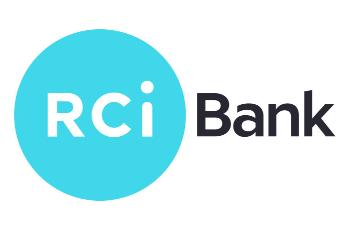This comparison simply includes all savings accounts.
Savings Accounts For Students
Why we like it: Interest paid annually. Unlimited deposits and withdrawals. Open and manage online. FSCS Protected. Must be UK resident and be aged 18 or older
Why we like it: Easy access savings account that tracks the Bank of England base rate. Wave goodbye to the constant cycle of account hopping and forget waiting for banks to pass on higher interest rates. Interest rate moves with the Bank of England base rate, guaranteeing a fixed margin of up to 0.5% below, and adjusts the very next day. Easy access to your money with once a month withdrawals, without notice and without fees. Earn daily interest on your money, and experience the power of compounding to make your savings work harder. Maximum deposit £250,000. Wombat has partnered with GB Bank to bring you the Base Rate Tracker. GB Bank is an award-winning, fully authorised and regulated UK bank. FSCS eligible on your deposits. Must be UK resident. Must be aged 18 or older
Why we like it: A new savings account from Chip built to move with the Bank of England and reward you faster than the banks. Interest paid monthly. Deposit and withdraw almost instantly. No fees or charges for holding account. FSCS eligible on your deposits. Must be UK resident. Must be aged 18 or older.
Why we like it: Save from £1. Unlimited payments and withdrawals. Interest paid annually. Open in a single or a joint name. Maximum deposit £500,000. Open and manage account online. FSCS Protected. Must be UK resident. Must be aged 16 or older
Why we like it: Choose monthly or annual interest payments. Unlimited deposits and withdrawals. 24/7 access to your savings. Open and manage online. After 12 months the rate will revert to the underlying rate, currently 1.55% gross/AER variable. Post Office Online Saver is provided by Bank of Ireland UK. Must be UK resident. Must be aged 18 or older. FSCS protected
Why we like it: Which? Recommended Savings Provider. No notice period. Deposit from £100. Interest paid monthly or annually. Apply in minutes. Your eligible deposits with RCI Bank UK Limited are protected up to a total of £85,000 by the Financial Services. Compensation Scheme (FSCS)
Why we like it: Instant access to your savings. Unlimited deposits and withdrawals. Interest paid monthly, either to a linked current account, or adding it to your Online Flexi Saver account. Easy application process, you just need a UK mobile phone and UK driving licence or passport. Manage account online. Maximum balance £250,000. Must be aged 18 or older and have a UK address. Must have a linked UK current account. Your eligible deposits with Investec Bank are protected up to a total of £85,000 by the Financial Services Compensation Scheme (FSCS)
Why we like it: All funds deposited into the RCI Bank E-Volve Savings 14 Day Notice Account will be used to fund pure electric vehicles and charging facilities. Interest paid monthly or annually. Manage account online. UK-based support, seven days a week. Which? Recommended Savings Provider. Unlimited withdrawals subject to 14 days notice. Must be UK resident. Must be aged 18 or older. Your eligible deposits with RCI Bank UK Limited are protected up to a total of £85,000 by the Financial Services Compensation Scheme (FSCS)
Why we like it: Unlimited deposits and withdrawals. Interest paid monthly: can be added to your Notice Saver or paid to your linked account. Easy application process, you just need a UK mobile phone and UK driving licence or passport. Manage account online. Maximum balance £250,000. Withdrawals subject to 90 days notice. Must be aged 18 or older and have a UK address. Must have a linked UK current account
Why we like it: 9 month term, minimum deposit £1,000, no withdrawals permitted. FSCS Protected
Why we like it: 1 year term, minimum deposit £1,000, no withdrawals permitted. FSCS Protected
Why we like it: Minimum deposit £1,000 - No withdrawals permitted - FSCS Protected
Compare Savings Accounts For Students
When putting your money into a savings account, you need to consider how long you intend to save for and how much of a return you would like to see. You can then compare the different types of savings accounts available to see which ones best match you saving goals. for the best savings accounts as a student see the table above.
Although it can be difficult to start saving as a student, the importance of putting money into your savings at an early age cannot be understated.
Throughout university you will receive student loans, bursaries, grants or additional support; if you can spare any amount of this money to add to your savings, it may open up opportunities in the future.
Building your savings throughout university may allow you to travel upon graduation or give you some breathing room whilst you look for employment.
You could look to use a combination of the savings options below to stay flexible and get competitive rates of interest.
Current Accounts
Current accounts generally offer the best rates of interest for smaller sums of money. However, if you go over your account’s interest limit, your remaining balance will likely earn you nothing.
To get the best deal, you may have to shop around and be willing to transfer your current account to a new provider. It’s also worth bearing in mind that some current accounts offer a better interest rate during an introductory period which then drops dramatically once that period is over.
Instant Access Savings Accounts
This type of account allows you to earn interest on your savings while still giving quick access to your money when necessary. Some instant access accounts come with a card that lets you draw money out at cash points, others require you to take money out in branch or transfer it to a current account online or by phone.
Please be aware there may be a limit on how many withdrawals you can make per year without losing some of your interest.
Due to the nature of a student’s financial position, an instant access account could be the best fit for student savings. Although the interest rate is not the best on the market, an instant access account allows you to make a withdrawal from your savings when you need it, allowing you to survive when money is tight.
Easy Access Savings Accounts
Essentially the same as instant access accounts, except there may be a few days' delay when you wish to take money out. This is to allow withdrawal and transfer requests to be processed.
Some providers also refer to their instant access accounts as easy access accounts.
Notice Savings Accounts
These are similar to easy access and instant access savings accounts, except you have to give a certain amount of notice before removing funds. Common notice periods range from 40-95 days. The longer the notice period you are willing to give, the higher the interest rate you will usually receive.
Regular Savings Accounts
If you want to put away a little bit of money each month over a longer period, a regular savings account is likely to be the best choice. This kind of account usually requires you to deposit a minimum amount each month and will normally specify a maximum you can put in each month as well. There may also be a limit on how many withdrawals you can make each year.
Regular savings accounts often offer very attractive rates of interest, but it is important to note that, because you are only slowly building up capital, your initial yearly returns may be modest. This means that, while they can be used for short term savings, regular savings accounts are usually a better choice for longer term savings.
Fixed Rate Bonds
Fixed rate bonds tend to offer attractive rates of interest which will be guaranteed for the life of the bond (typically 1-5 years). The caveat here is that you cannot usually take money out of the bond until it matures (i.e. reaches the end of the fixed interest period).
This means most fixed rate bonds are not ideal for short term savings, although some providers do offer fixed rate bonds with terms as short as 3 months which may be worth considering.
Unless you are confident that you will not need to touch your savings, a fixed rate bond may not be the best option as a student.
Cash ISAs
UK tax payers normally have to pay tax on any interest they earn on their savings. However, a cash ISA allows you to earn interest, tax-free, on deposits up to an agreed yearly limit. For the 2017/18 tax year that amount is £20,000.
There are two main types of cash ISAs – instant access and fixed-term. Instant access cash ISAs allow you to withdraw money whenever you need without paying a penalty, making them ideal for short term saving. Fixed-term cash ISAs have similar conditions to fixed rate bonds, so you may be unable to withdraw money until they reach the end of their term or have to pay a penalty in order to do so.
Cash ISAs do not always offer the best interest rates, so you will need to assess whether any tax savings will outweigh the benefits of the higher interest rates provides by other types of accounts.
A cash ISA may be the best option for you if you receive a significant amount of money. For example, if you receive a bursary that you do not need to use in the near future, you could put the money away and receive tax-free interest.
Guide to the Best Student Savings Accounts
Understanding Student Savings Accounts
When you're a student, managing your finances becomes an essential part of your journey towards financial independence. One of the fundamental tools for securing your financial future is a Student Savings Account.
What is a Student Savings Account?
A Student Savings Account is a specialised bank account designed exclusively for students. It offers a secure and convenient way to save money while you're studying. These accounts often come with benefits tailored to the needs of students, such as higher interest rates and lower fees, helping you make the most of your hard-earned money.
Importance of Having a Student Savings Account:
- Building Good Saving Habits: By having a dedicated savings account, you cultivate the habit of setting money aside regularly. This practice prepares you for a financially responsible future.
- Emergency Fund: Life as a student can be unpredictable, and having an emergency fund in your savings account provides a safety net during unexpected situations.
- Interest Earnings: Student savings accounts typically offer higher interest rates than standard accounts, helping your money grow over time.
- Financial Security: With a savings account, you have a sense of financial security, knowing that you have funds readily available for planned expenses like educational materials, outings, or even a short trip home.
- Future Investment: As your savings grow, you can consider using the money as a foundation for future investments, like starting a business or furthering your education.
Eligibility Criteria for Student Savings Accounts
Before you rush to open a student savings account, it's essential to understand the eligibility criteria. While these criteria may vary slightly from one bank to another, here are the common requirements:
- Student Status: Obviously, you need to be a student to qualify. Usually, this means you must be enrolled in a recognised educational institution, whether it's a university, college, or vocational school.
- Age Restrictions: Some student savings accounts have age restrictions. Most are available to students aged 18 and above, but there are accounts tailored to younger students as well.
- Residency: Banks in the UK often require you to be a UK resident to open a student savings account.
- Identification Documents: As with any bank account, you'll need to provide identification documents such as a valid passport, driver's license, or student ID.
- Parental Consent: If you're under 18, you might need your parent's or guardian's consent to open the account.
Understanding these criteria will help you determine if you qualify for a student savings account and which one best suits your needs.
Top Benefits of Student Savings Accounts
Higher Interest Rates
Student savings accounts often offer higher interest rates compared to standard current accounts. This means that the money you deposit in your savings account will grow at a faster pace over time. Take advantage of compounding interest to maximise your savings.
Let's say you deposit £500 at the beginning of the academic year into a savings account with an annual interest rate of 3%. At the end of the first year, you will have earned £15 in interest. In the second year, your balance becomes £515, and you will earn interest not only on the initial £500 but also on the £15 interest you earned in the first year. This process continues, helping your savings grow steadily.
Lower Fees and Charges
Many student savings accounts come with reduced fees and charges compared to regular accounts. Banks recognise that students may have limited funds and aim to ease the financial burden by offering accounts with minimal fees. Common fee waivers include charges for ATM withdrawals, account maintenance, and online transactions. However, it's crucial to review the fee structure carefully to understand any charges that might apply.
Financial Education and Resources
Student savings accounts are not just about storing money; they often come with valuable educational resources. Banks understand that many students are navigating personal finance for the first time, and they provide educational materials and online resources to help you make informed decisions about your money. These resources might include budgeting tips, investment guides, and financial planning tools.
By taking advantage of these educational resources, you can develop a stronger financial acumen, setting yourself up for better financial management in the future.
Tips for Choosing the Right Student Savings Account
Selecting the right student savings account is crucial as it can shape your financial journey. To make an informed decision, consider the following essential tips:
Analysing Interest Rates and Compounding Periods
Interest Rates: Compare the interest rates offered by different banks for their student savings accounts. Even a slight difference in the interest rate can have a significant impact on your savings over time. Opt for an account with a competitive interest rate to maximise your earnings.
Compounding Periods: Check how often the interest is compounded. The more frequent the compounding, the faster your savings will grow. For example, an account with quarterly compounding will accumulate interest more rapidly than one with annual compounding.
Fee Structures and Hidden Charges to Watch Out For
Account Maintenance Fees: Some banks may charge monthly or annual fees for maintaining your student savings account. Look for accounts with little to no maintenance fees, especially if you have a limited budget.
ATM Withdrawal Charges: If you anticipate using ATMs frequently, consider an account that offers free or discounted ATM withdrawals to avoid excessive charges.
Overdraft Fees: While student savings accounts are not typically overdraft-enabled, it's essential to be aware of the fees in case of accidental overdrafts.
Online and Mobile Banking Facilities
Having easy access to your savings account is vital for today's students who are always on the go. Look for banks that offer user-friendly online and mobile banking platforms. Features like mobile check deposit, fund transfers, and spending analytics can enhance your banking experience.
Customer Service and Accessibility
Customer service can be a crucial factor, especially when you have questions or encounter issues with your account. Check the bank's customer service channels, such as phone support, live chat, and email, to ensure they provide prompt and reliable assistance.
Additionally, consider the bank's branch and ATM network. If having physical branches nearby is essential to you, choose a bank with convenient branch locations.
Understanding Terms and Conditions
Before finalising your choice, thoroughly read and understand the terms and conditions of the student savings account. Pay attention to minimum balance requirements, interest rate changes, account closure policies, and any other relevant information. Being aware of these details will help you avoid surprises and make informed decisions.
By carefully considering these tips, you can confidently choose the student savings account that aligns with your financial goals and provides the best value for your money.
How to Open a Student Savings Account
Opening a student savings account is a straightforward process, and it can be done in a few simple steps:
Gather Required Documents
Before heading to the bank or applying online, ensure you have all the necessary documents ready. Commonly required documents include:
- Identification: Bring a valid form of identification, such as a passport, driver's license, or student ID.
- Proof of Address: You'll need to provide a document that verifies your current address, such as a utility bill or bank statement.
- Student Status Proof: As the account is specifically for students, you'll need to show proof of your student status. This can be your acceptance letter, enrollment certificate, or a letter from your educational institution.
Visit the Bank's Branch or Apply Online
You can choose to visit the bank's branch in person or apply for a student savings account online through the bank's website. Applying online is usually more convenient and saves time.
In-Person Application:
- Locate a nearby branch of the bank you wish to open an account with.
- Speak to a bank representative and express your interest in opening a student savings account.
- Provide the required documents for verification.
- Fill out the application form, providing accurate information.
- Review the terms and conditions before signing the agreement.
- Once your application is approved, you'll receive your account details, and your account will be active.
Online Application:
- Visit the bank's official website.
- Navigate to the student savings account section and click on the "Open Account" or similar button.
- Fill out the online application form, providing accurate details and uploading scanned copies of the required documents.
- Review the terms and conditions before submitting your application.
- You may need to verify your identity through an online verification process.
- Once your application is approved, you'll receive your account details via email or mail, and your account will be ready to use.
Understanding Terms and Conditions
Upon successfully opening your student savings account, it's crucial to carefully read and understand the account's terms and conditions. Pay attention to details such as interest rates, compounding periods, fees, and any limitations on withdrawals or transfers. Understanding these terms will help you make the most of your account while avoiding any potential penalties.
Managing and Growing Your Savings
Creating a Budget and Savings Plan
Budgeting: Start by creating a realistic budget that outlines your income and expenses. Identify areas where you can cut back on unnecessary spending and allocate a portion of your income to savings each month.
Automated Savings: Set up automatic transfers from your main account to your student savings account. Automating your savings ensures that you consistently save money without having to think about it.
Savings Goals: Set specific savings goals to work towards. Whether it's building an emergency fund, saving for a future trip, or setting aside funds for a major purchase, having clear goals will motivate you to save more diligently.
Maximising Deposits and Utilising Windfalls
Be Frugal: Look for ways to reduce expenses and be mindful of your spending habits. For example, opt for cooking at home instead of dining out, and consider purchasing second-hand textbooks or borrowing them from the library.
Utilise Windfalls: If you receive unexpected money, such as birthday gifts, bonuses, or tax refunds, consider depositing a portion of it into your savings account. While it's tempting to spend windfalls, using them to boost your savings can accelerate your progress.
Part-Time Jobs and Internships: If your schedule allows, consider taking on part-time jobs or internships to supplement your income. The additional earnings can go directly into your savings.
Exploring Investment Options for Higher Returns
Explore Your Options: As your savings grow, consider exploring investment opportunities to potentially earn higher returns. Look into low-risk investment options like a fixed deposit or a mutual fund that aligns with your risk tolerance.
Invest Wisely: Before making any investment decisions, educate yourself about the various investment options available and seek advice from a financial advisor if necessary.
Diversify Your Portfolio: If you choose to invest, consider diversifying your investment portfolio to spread risk and increase the potential for higher returns.
Remember that while investing can potentially yield higher returns, it also carries some level of risk. Make informed decisions and invest only what you can afford to lose.
Frequently Asked Questions about Student Savings Accounts
Are Student Savings Accounts Tax-Free?
In the UK, student savings accounts are subject to the same tax rules as other savings accounts. The interest you earn on your savings may be subject to income tax depending on your total taxable income. However, most students have a Personal Savings Allowance (PSA), which means they can earn a certain amount of interest tax-free each year. As of the current tax year, the PSA for basic-rate taxpayers is £1,000, and for higher-rate taxpayers, it is £500. Additional-rate taxpayers do not receive a PSA.
Example: If you earn £800 in interest from your student savings account in a tax year and you are a basic-rate taxpayer, your PSA will cover the entire interest amount, and you won't owe any tax on it.
Can I Access My Savings Anytime?
Most student savings accounts provide easy access to your funds. You can withdraw money from your account whenever you need it through various channels such as online banking, mobile apps, and ATMs. However, some accounts may have withdrawal restrictions or penalties for withdrawing funds before a specified period.
It's essential to review the terms and conditions of your student savings account to understand any limitations on withdrawals and any associated charges.
What Happens to My Account After Graduation?
Many student savings accounts offer attractive benefits while you are studying. After graduation, your account may convert to a standard savings account, which might have different terms and conditions. The interest rate and fees could change, and you might lose any specific student perks.
It's advisable to contact your bank or check their policies regarding account conversion after graduation to ensure you are aware of any changes that may occur.
If you are no longer eligible for a student savings account after graduation, consider exploring other savings or investment options that suit your financial goals and circumstances.









